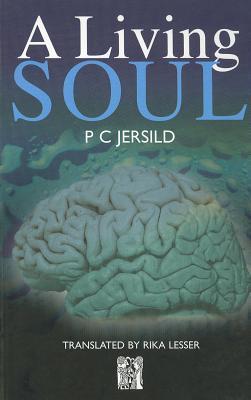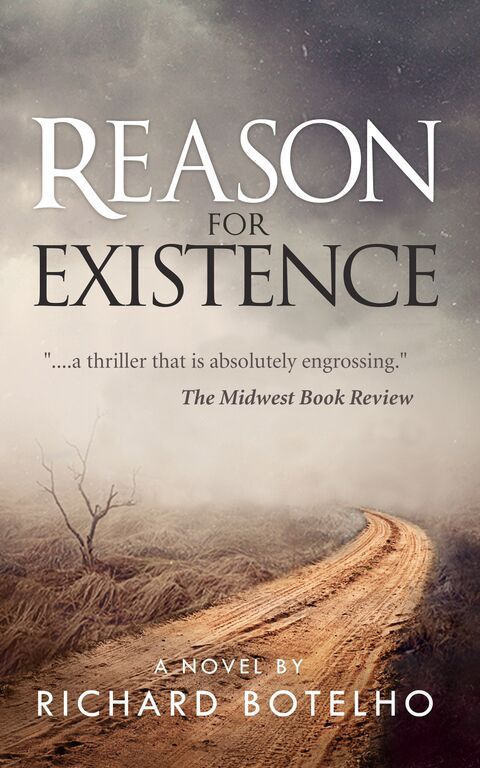
A Living Soul
Book Description
In a world where technology blurs the line between life and death, one man grapples with the haunting question of existence. As the boundaries of ethics are pushed, he finds himself entangled in a web of love, betrayal, and moral dilemmas that challenge everything he believes. With hearts breaking and tensions mounting, every decision carries profound consequences. Gripping and thought-provoking, “A Living Soul” explores the depths of humanity and the essence of the self. Will he save what truly matters, or will he lose himself in the process?
Quick Book Summary
“A Living Soul” by P.C. Jersild is a provocative Swedish novel that explores the limits of identity and consciousness in a technologically advanced world. The story follows Ypsilon, a human brain isolated in a laboratory tank, who maintains awareness despite lacking a body. As a scientific experiment designed to further neurological research, Ypsilon is both an object of study and a sentient individual, forced to confront existential questions of personhood, love, and free will. Through his introspective narrative, Ypsilon observes and interacts with a cast of ethically ambiguous researchers, gradually unveiling their moral shortcomings and the fundamental loneliness of his condition. Jersild uses dark humor and sharp wit to expose the absurdity and dangers of unchecked scientific ambition, drawing readers into a chilling meditation on the soul, compassion, and the meaning of life.
Summary of Key Ideas
Table of Contents
The Nature of Consciousness and Identity
Ypsilon, a disembodied human brain, awakens to a peculiar existence preserved in a tank for scientific study. Despite lacking sensory input beyond limited vision and hearing, Ypsilon quickly adapts and confronts the surreal reality of his situation. His mere survival is predicated on a relentless routine of tests, neurological manipulations, and the whims of his caretakers. Struggling to define himself apart from the experiment, Ypsilon begins an urgent quest to understand where consciousness and personhood reside when the physical body is stripped away.
Ethical Dilemmas in Scientific Experimentation
Ypsilon’s only connection to the world is through the laboratory staff, a group of researchers who are as bureaucratic as they are brilliant. The story differentiates their various motives—some treat Ypsilon with cold clinical detachment, while others reveal a measure of sympathy. Through conversations, lectures, and his own observations, Ypsilon comes to realize that he is nothing more than a project, disposable if he ceases to be useful. This dehumanization is central to the novel, exposing how institutional power can warp ethical considerations in the pursuit of knowledge.
Isolation, Loneliness, and the Search for Connection
Haunted by memories and fantasies of love, Ypsilon finds himself yearning for human connection. He is drawn deeply to the nurse who tends to him, precipitating a swirl of emotions ranging from desperate infatuation to profound sadness. With only his thoughts as companions, Ypsilon’s loneliness underscores the essential human need for empathy, companionship, and recognition. The pain of isolation intensifies as Ypsilon recognizes that he has become an observer of, rather than a participant in, the flow of life.
Critique of Authority and Institutional Power
As the experiment progresses, Ypsilon confronts the disturbing prospect that his continued existence is a matter of policy, not compassion. This tension comes to a head as institutional decisions threaten his survival. Through Ypsilon’s plight, Jersild scrutinizes the ethical boundaries of scientific progress, raising questions about autonomy, dignity, and the rights of sentient beings. Betrayals by the very individuals entrusted with his care strip away remaining illusions, culminating in profound revelations about loyalty and moral responsibility.
Humor as a Lens for Philosophical Inquiry
Despite the dark subject matter, Jersild imbues the narrative with wit and irony, highlighting the absurdity of Ypsilon’s predicament and the human tendencies toward self-deception and rationalization. The biting humor serves as both a coping mechanism and a tool of critique, inviting reflection on philosophical questions with both gravity and levity. Ultimately, “A Living Soul” challenges readers to consider what truly constitutes the human soul and at what cost we pursue knowledge and power.
Download This Summary
Get a free PDF of this summary instantly — no email required.





